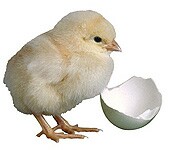
THURSDAY, March 21 (HealthDay News) — Just in time for Easter, health officials are issuing another cautionary tale about the dangers of salmonella infection from chicks and ducklings.
The U.S. Centers for Disease Control and Prevention has published findings on an outbreak linked to backyard flocks of young chickens and ducks bought from a mail-order hatchery in Ohio that caused a multistate salmonella outbreak between March and September of last year.
The outbreak involved “the largest number of human illnesses ever linked to contact with live poultry during a single outbreak,” the CDC said in the March 22 issue of its journal Morbidity and Mortality Weekly Report.
Overall, 195 people across 27 states were infected during the outbreak, which involved three salmonella strains. Eighty-seven percent of infected people for whom purchasing information was available bought chicks or ducklings from a single mail-order hatchery in Ohio, which has been linked to other salmonella outbreaks.
The outbreak “underscores the ongoing risk for human salmonellosis linked to backyard flocks,” said a team that included the CDC’s Jennifer Mitchell.
Preventing these infections requires an integrated approach involving hatcheries, feed stores and consumers, the study authors added. Even casual contact in stores can pass on salmonella, so “feed stores should use physical barriers (e.g., a wall or fence) between customers and poultry displays to prevent direct contact with poultry,” the CDC said.
The study authors said people need to be aware that live poultry, including chicks and ducklings, are sources of salmonella infections, which can cause serious illness in young children, older adults, and people with weakened immune systems.
To prevent infections, people must wash their hands thoroughly with soap and water immediately after touching live poultry or anything in the area where poultry live and roam, the report said.
Chicks and ducklings aren’t the only small animals linked to salmonella. Previous reports from the CDC have cited lizards, turtles and hamsters in outbreaks of the serious gastrointestinal infection.
More information
The U.S. Centers for Disease Control and Prevention has more about live baby poultry and salmonella infections.

